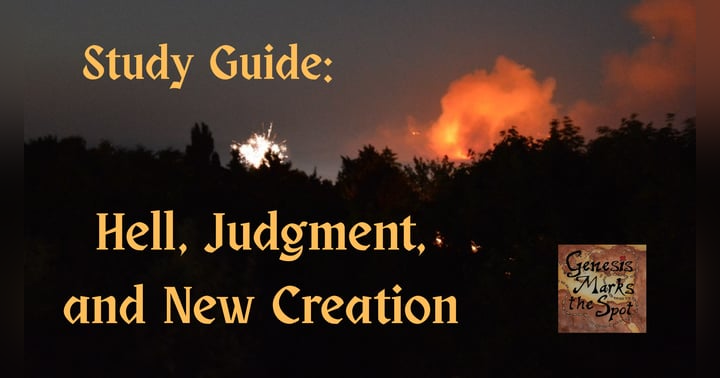What Is Biblical Theology?

When people hear the term “biblical theology,” it’s easy to assume it simply means “theology that is biblical.” But in scholarly and church circles alike, biblical theology refers to a specific method of doing theology--a method that’s rich in context, rooted in Scripture’s own narrative, and distinct from other approaches like systematic theology.
In this post, we’ll define biblical theology, explore several key approaches within it, and unpack how it differs from systematic theology. We’ll also address an important misconception: biblical theology does not inherently ignore a canonical reading of Scripture. In fact, it can deepen our appreciation of the canon and even enrich systematic reflection.
What Is Biblical Theology?
Biblical theology seeks to understand the theological message of the Bible as it unfolds through the historical and literary context of Scripture itself. Its central concern is context: What did this text mean in its original setting? How did it speak to ancient Israel, or to the early church? And how do the various books of the Bible connect to tell a unified, redemptive story?
Unlike systematic theology--which tends to ask, “What does the whole Bible say about X?”--biblical theology asks, “What does this author, in this time and place, say about God, covenant, or salvation?” It’s diachronic, meaning it tracks the development of themes over time.
And here's the key: biblical theology doesn’t ignore the canon. In fact, many approaches to biblical theology (including canonical and redemptive-historical methods) are deeply attentive to how the biblical books were compiled, read, and interpreted as a whole.
The Spectrum of Biblical Theology
Biblical theology isn't a monolith. Scholars and pastors alike approach it from different angles. In the book Understanding Biblical Theology, five types are identified, which serve as helpful markers along a spectrum:
- Historical Biblical Theology
Focuses on the beliefs and religious practices of the people in their own cultural-historical setting. This is often more academic and less confessional, concerned more with “what they believed” than “what we believe.” - Theological Construction (Biblical = "Correct")
This approach assumes that one’s own theological system is what the Bible teaches--essentially collapsing theology into one's preferred reading. It's a common but often uncritical use of the term. (When someone says "biblical theology" and they really DO primarily mean "theology that's biblical," then this is probably the type of thing they're thinking about.) - Canonical Biblical Theology
Emphasizes the final form of the biblical text and treats the canon as the theological guide. It sees meaning not just in original context, but in how texts function as part of the whole canon used by the Church. - Narrative or Worldview Biblical Theology
Views Scripture as a unified story, with an emphasis on literary elements and intertextual connections. This is the approach popularized in places like The Bible Project. - Redemptive-Historical (or Canonical-Redemptive) Biblical Theology
Probably the most well-known evangelical form, this approach traces the progression of God's plan of redemption across the biblical timeline—from creation and fall to Christ and new creation. It maintains a strong respect for both historical context and canonical unity.
Now, you might not be able to tell, just from those descriptions, how each of those methods are different from the others. The point is that different scholars in different schools take slightly nuanced approaches, and so one should not presume that one scholar's biblical theology is exactly like another's. This is a source of some criticism, but I suggest that it's helpful to have various facets and that they do not need to contradict or oppose one another.
How Is Biblical Theology Different from Systematic Theology?
Systematic theology is organized topically: God, humanity, sin, salvation, church, eschatology, etc. It aims to synthesize what the entire Bible says about these categories. Its strength is its clarity and comprehensiveness.
However, systematic theology often begins with questions that we--modern readers--bring to the Bible. It organizes Scripture in response to those questions. That’s not bad in itself, but it can create the illusion that our interpretations are infallible or that the system we’ve constructed fully captures biblical truth. And the really dangerous part is if we figure out that we've seen something a bit "off" from how the biblical authors were thinking, well...that means that we probably ought to rethink our systematic formulations. And that's hard to do.
Biblical theology, as opposed to a systematic approach, requires Scripture to speak on its own terms. It tracks how theological themes unfold over time. It's more concerned with narrative development than with categorical neatness.
That said, you can’t (and shouldn’t) do one without the other. Without a solid framework of some sort, biblical theology can cause us to melt down into bad thinking when we don't see the whole picture of what is being communicated through Scripture. Systematic theology needs biblical theology to stay rooted in the Bible’s story. And biblical theology benefits from the structure and clarity that systematic reflection provides when we have unique and modern questions that simply are not addressed by the biblical author.
Why Does This Matter?
For many people, especially those deconstructing inherited dogmas or seeking deeper understanding, biblical theology can be transformative. It helps us read Scripture more faithfully by restoring its ancient context. It opens up the text to fresh insights. It can correct over-simplified or even harmful theological assumptions. And for those who grew up with rigid frameworks, it shows that Scripture is richer and more complex than we often assume.
That can be scary, and that is why theology can't and shouldn't be done in a vacuum without a faithful community (and not simply a dry systematic) to help provide structure.
Biblical theology is not an escape from practical theology--it’s a path deeper into it. Biblical theology invites us to engage Scripture as a story rooted in history and canon, not just a repository of doctrinal proof texts. It gives room for nuance, depth, and mystery, while still affirming the authority of the Bible.
Come with me on a journey into the heart of the biblical world, with its own booby traps (proof-texting), ancient maps (context), and yes—hidden gems of truth.








